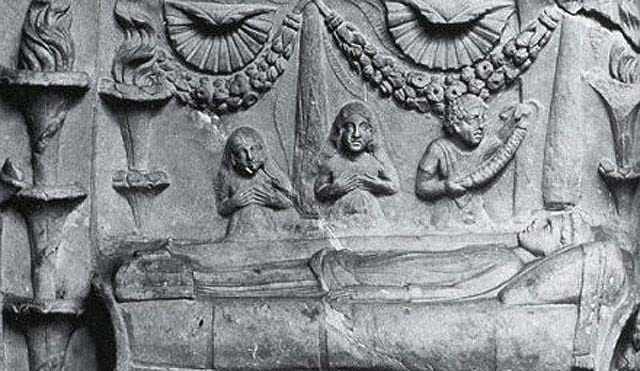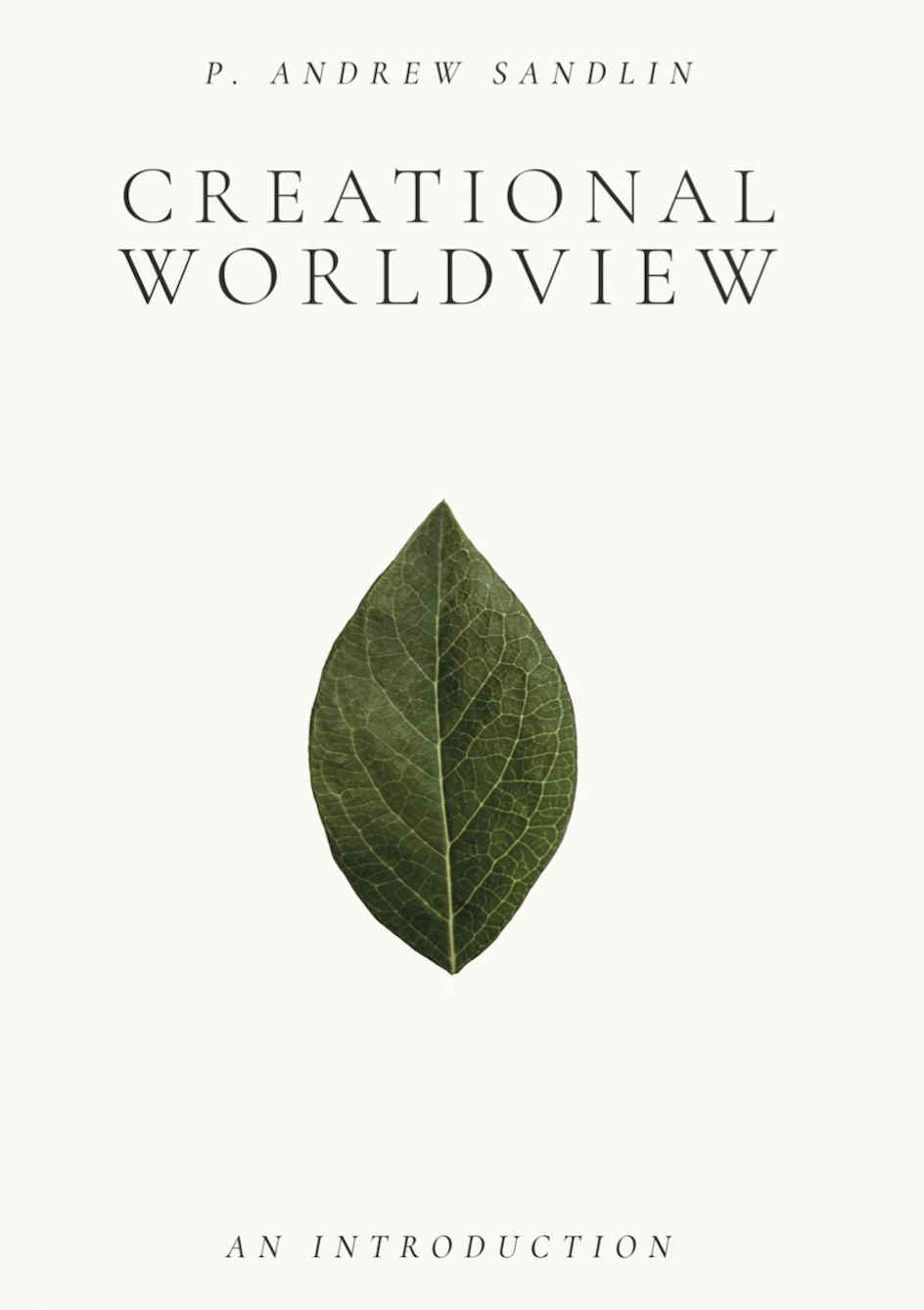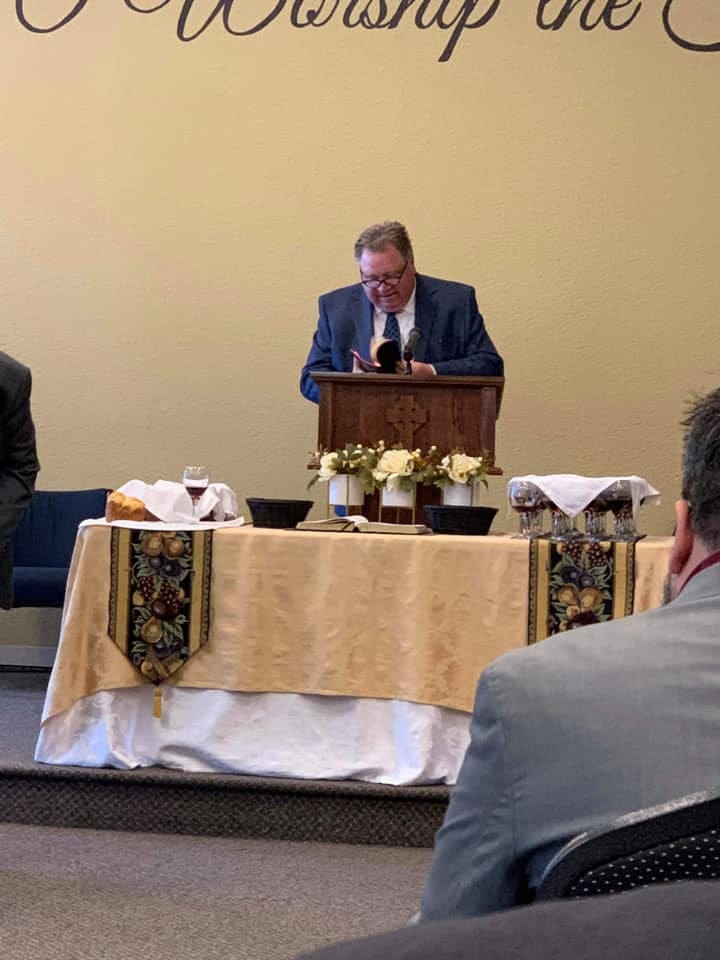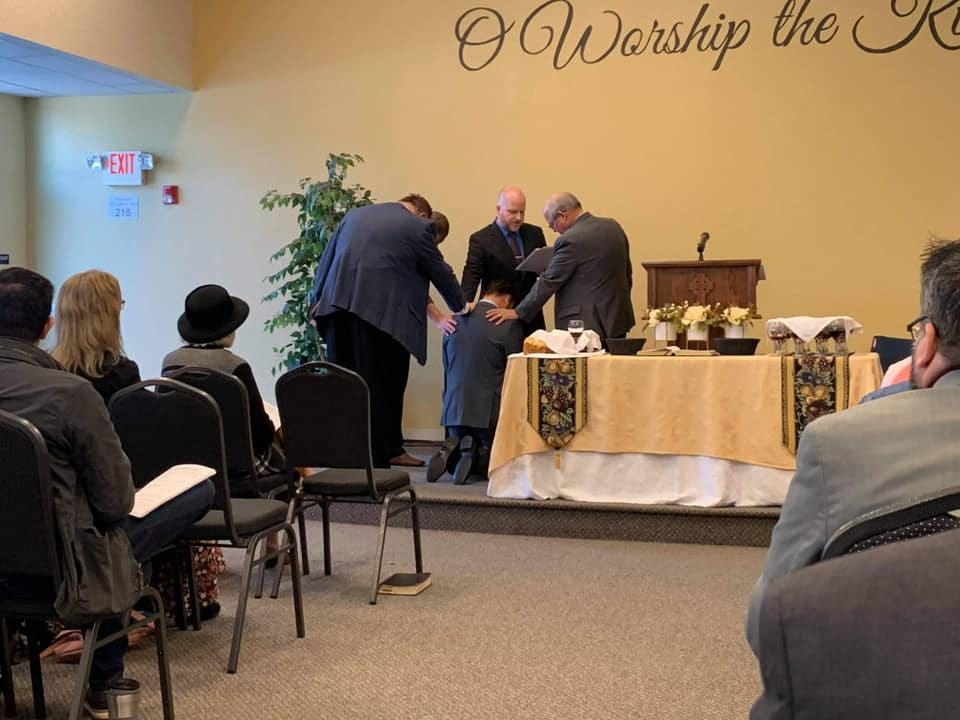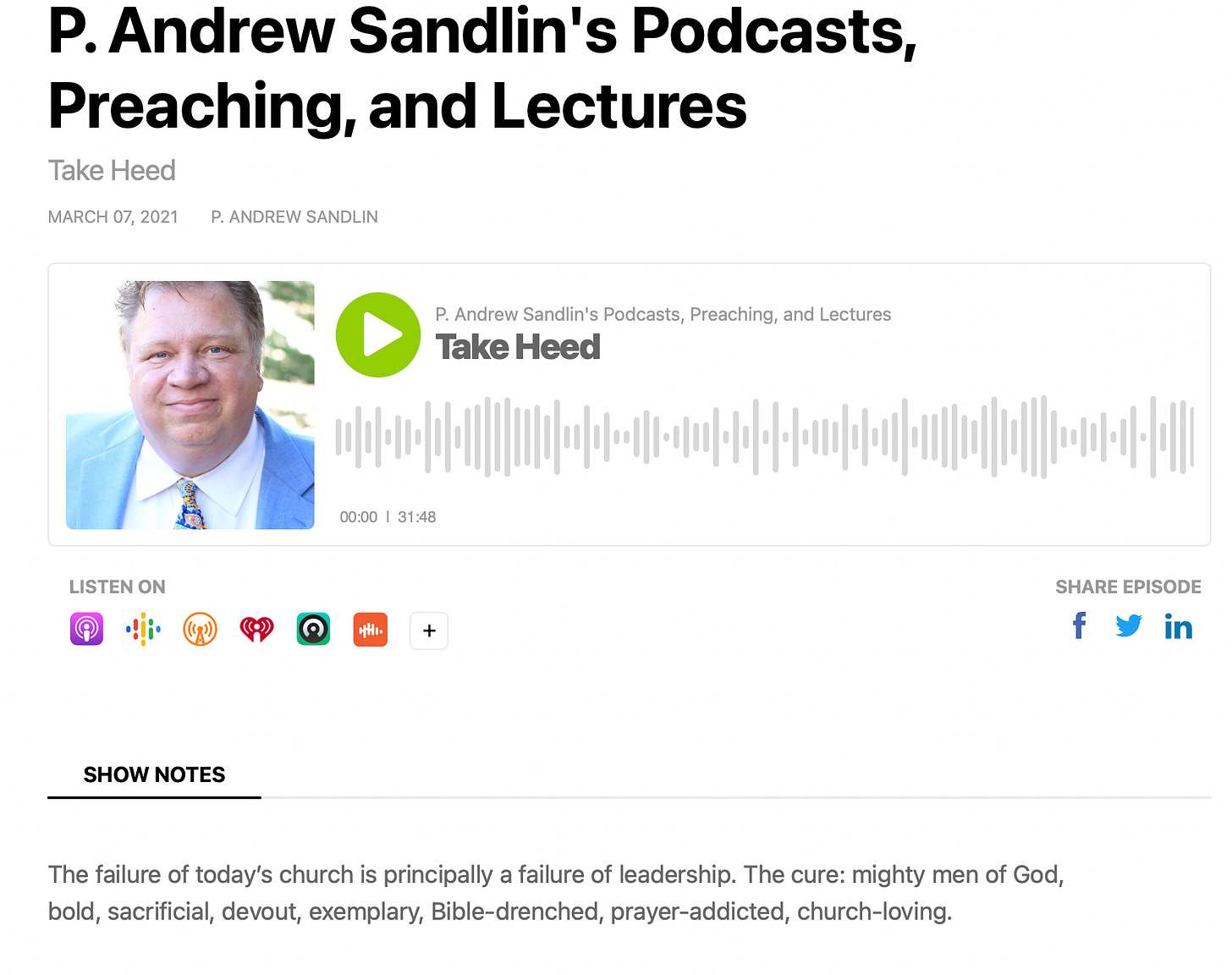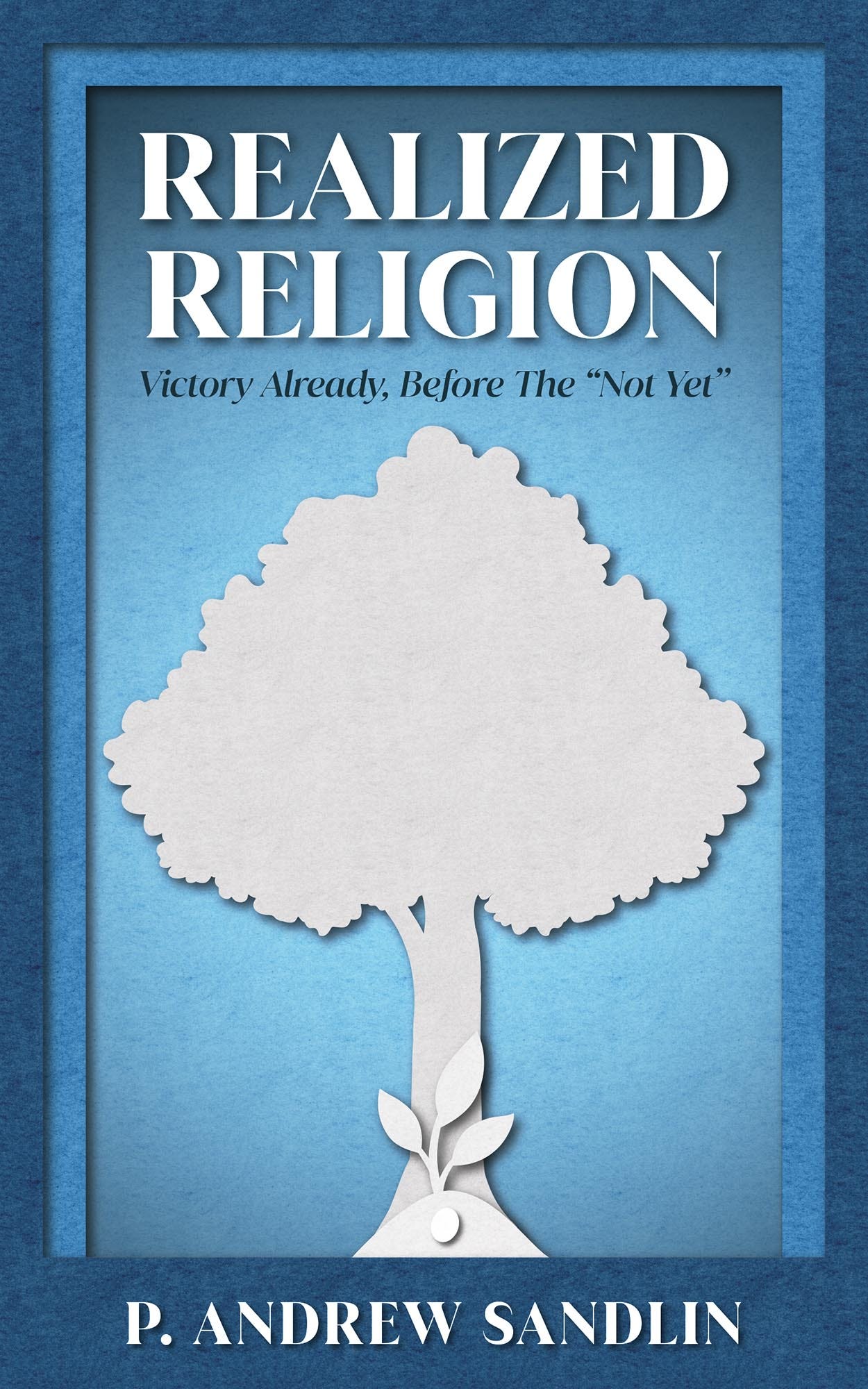Gnostic Funerals
Funerals are a gauge of the impact of Gnosticism in Christianity. Underlying the Gnostic attitude in modern Christian funerals is the most troubling assumption of all: a theology of escape.
Dear friends and supporters:
Over the last couple of months I’ve conducted two funerals of dear friends: the first was for Melinda Enick, wife of Doug Enick, pastor of Trinity Evangelical Church, Pratt, Kansas. The second was for Richard Taylor, a Christian businessman from northern Virginia with whose family I’ve been close for a quarter century. The sobering preparation for these funerals compelled me to ponder afresh the distinctly Christian meaning of death. The single dominant truth that saturated my entire preparation was how Christian funerals are the antithesis of Gnosticism.
Gnosticism is the oldest Christian heresy, in Stuart Holroyd’s words, “the heresy of heresies.” It was “the boldest and grandest syncretism the world had ever seen . . . . the first attempt in the history of the Church to bring the world into subjection to the Church by interpreting Christianity in harmony with the world. Christianity was to be made a truly modern religion” (J. L. Neve).
It’s the most pernicious, persistent, and a permanent heresy in the Christian church, and also in secular society.
The basic idea of Gnosticism is that creation is evil, and the enlightened man’s goal is to emancipate himself from that creation, notably from the material world. The physical universe is the product of an inferior god, but Jesus Christ came to provide a secret knowledge (gnosis) that would help deliver humanity from this evil material existence.
The Bible’s Radical Anti-Gnosticism
The biblical view, in radical contrast, posits the world’s indisputable evil as a result of sin, inaugurated by man’s violation of God’s law and will in Eden, and transmitted to all subsequent humanity. For the Gnostics, man’s problem is his ubiquitous environment. For Christians, man’s problem is his depraved heart, which poisons his environment.
Christian funerals today are often more Gnostic than biblical, or at least bear the stamp of Gnosticism.
Resurrection, not Disembodiment
For example, at most Christian funerals the minister offers the comforting words that the decedent is now “with the Lord.” This much is correct, for the apostle Paul make very clear that when we are absent from the body, we are present (or at home) with the Lord (2 Cor. 5:8).
The problem, however, is that the minister usually stops there. In the Bible, the great hope of individual salvation is not merely being with the Lord, but the final resurrection (1 Cor. 15; Jn. 5:28–29; 11:25; Rom. 8:11), in which our being in its totality will have been redeemed, and we will glorify God in Jesus Christ on a renovated, resurrected earth for all eternity (Rev. 21:1–8).
The fact that this construction sounds so dangerously this-worldly to Christians indicates how far we have drifted from not only biblical soteriology (doctrine of salvation) but also biblical anthropology (doctrine of man).
The ancient Greek error
The ancient Greeks saw man as a compound being. He is comprised of an eternal soul, and a perishable and temporary body. The soul is the permanent, non-physical substance that makes man what he is. In fact, many Greeks like Plato believed in the pre-existence of souls. At birth, eternal souls were placed in bodies from which they were liberated at death. The Gnostics held a similar view.
This is not the biblical meaning of the term soul. In the Bible, “soul,” in both Old and New Testament, is roughly equivalent to life or being or person. When we read in Genesis 1 that God fashioned man from the dust of the ground, breathed into his nostrils the breath of life, and man became a living soul, or being, we encounter a hint at the biblical anthropology: man is constituted as a creationally indissoluble union of (1) divinely imposed breath within (2) creatively fashioned soil.
For the Gnostics, the authentic person resides inside a body. For Christians, the soul is the person in toto.
Modern naturalism goes to the opposite extreme. Man is comprised only of the material: skin, blood, bone, and electrical and chemical impulses. This obviously also is contra-biblical to the very core.
Man a synthetic being
The biblical truth is that man is a synthetic being, “synthetic” not as in artificial, but as in synthesis. The immaterial aspect of man (spirit) is woven into his body. When the body dies, the spirit returns to God who gave it (Ec. 12:7), with whom it awaits the resurrection.
But — and this is the critical point — this disembodied existence is not man in his fulness. Man without a body can exist, but he is not what God intended. A disembodied human existence is an abnormality imposed by sin on God’s good creation order.
The resurrection restores man to his full humanity, that is, restores the creational order.
The “intermediate state”
The Bible assures us that when Christians die, they are with the Lord, but it provides much less information about this “intermediate state” (the time between the individual’s death and the final resurrection) than Christians sometimes suppose. In reading 2 Corinthians 5:1–8, we get the impression that it’s possible that in the intermediate state man is granted a temporary body.
While the Bible is not clear about this, Paul does seem to envision a disembodied existence with trepidation. In any case, we should take comfort in the fact that since our life is hid with Christ in God (Col. 3:3), we don’t cease to exist at death (“soul sleep”).
But Christian funerals that neglect to prioritize the resurrection rob Christians of this comfort. Men were designed to enjoy God and creation and, in fact, Jesus Christ himself as physical beings, that is, as human beings.
Embodied worship
This brings up a point not often appreciated: if man cannot be fully human without a body, he cannot love and worship God as effectively in a disembodied state.
This truth turns on its head the Gnostic notion that death is a great spiritual liberation, a anticipated state in which man is free truly to worship God in all his fullness. This is false. It is true that after we die, we no longer sin, but because we are not resurrected, sin still has a claim on us. That claim is only finally abolished in our resurrection (1 Cor. 15:42ff.). Disembodiment is a curse that only the resurrection lifts.
To worship God fully, freely, comprehensively, we must worship him in a redeemed, resurrected body.
At Christian funerals, therefore, the minister should stress the comfort that the decedent resides in the Lord’s presence, but point to the even greater eschatological blessing: the comprehensive, redeemed worship in the new heaven and new earth, that is, the present heavens and earth purified and resurrected.
(continued below)
We sometimes hear the well-meaning exhortation, “Christianity doesn’t start with the Bible, but with Jesus Christ.” This might very well be true, but Christians must embrace biblical truth anterior to Christianity, and that is creation as the Bible describes it. Put another way: the Bible is bigger than Christianity. We will not understand his person and work in their greater depths if we bypass creation. This is a small book about not bypassing creation. It’s a book about thinking in creational categories, and purging contra-creational categories that infect our culture and, in too many cases, our churches.
You can order the e-book or paperback here.
(continued)
An Enemy, Not an Inconvenience
This tendency to interpret death in its immediate ushering Christians into the presence of the Lord as an ultimate spiritual experience is often accompanied by a diminution of the gravity of death itself. Death, while often painful, is pretty much a good thing in that it rescues us from this temporal, physical, sinful world and into a sinless, non-physical, atemporal eternity.
But according to Paul, death is a great enemy, the last enemy, in fact (1 Cor. 15:26). Interestingly, the final enemy to be vanquished isn’t even Satan, but death itself. That shows us what a formidable enemy death is.
I sometimes hear Christians say about a recently deceased believer, “Oh, it was such a beautiful death.” Frankly, there is no such thing as a beautiful death, and it’s cruel to say there is.
Death is evil. It is destructive. It robs us of those we most love. It’s a radical separation in this life. Death is not the most natural thing in the world. Death is a decisive disruption in God’s good creational purposes.
When Jesus approached his good friend Lazarus‘ house after the latter‘s death, we read:
Therefore, when Jesus saw her [Mary, Lazarus’ sister] weeping, and the Jews who came with her weeping, He groaned in the spirit and was troubled. (Jn. 11:33)
The expression “groaned in spirit” means that Jesus was angered. He was not angry that Lazarus’ relatives and friends were grieving and wailing. This was a common practice in the Jewish world, and the Bible nowhere indicates it is wrong.
Rather, what angered Jesus was this most heart-wrenching consequence of sin, death itself. Jesus is the mediator of creation; in short, he is the world’s Creator, and he more than anyone else knew how contra-creational and abnormal death is.
His attitude was: “This should not be. This angers me. I came to abolish this life-destroying, joy-robbing, cosmos-disrupting evil.”
To a Gnostically tinged Christianity, however, it’s not clear why death is an enemy at all, much less the last enemy to be vanquished. Death is a minor inconvenience, a vestibule into the delight of an ethereal eternal bliss.
According to the Bible, it is not that at all, and any notion that it is reflects the influence of heresy, not biblical Christianity.
Burial, Not Cremation
Finally, consider the increasingly prevalent practice of cremation among Christians. Cremation was a common practice among ancient pagans of all kinds.
It came to the forefront during war. Friends and relatives of fallen soldiers wanted to assure that tangible remains could be transported back home after the war, and the only convenient way to do that was to cremate the body.
Over time, however, this practice was vested with exulted status, a reward for the bravest warriors. Their bodies would be cremated, carried home, and monuments would be erected on or near the remains.
The idea of bodily resurrection was almost unknown in the ancient world (apart from the Jews, of course), so the preservation of the corpse intact had no obvious rationale. Many, like the Egyptians, believed in an afterlife, and even sometimes an afterlife body of sorts, but nothing like the Christian resurrection.
Death in Christian culture
With the rise of Christianity at the decline of the Roman Empire, cremation became increasingly rare. It was simply not a part of Christian civilization. The reason was obvious: the body of believers would one day be raised incorruptible, and therefore it should be treated with respect.
Still, the Bible doesn’t specifically prohibit cremation, of course, and therefore it would be incorrect to declare baldly that it is sin without further qualification.
But the aversion to cremation in Christian society is a justifiable correlate to a fundamental belief in bodily resurrection.
Arguments countering Christian anti-cremation that point out that the body eventually decays to something like a cremated state anyway, or that ask what Christian anti-cremationists are to make of corpses consumed by animals are beside the point. Preserving human remains intact, when possible, is not a direct preparation for resurrection (obviously miraculous), but rather an attitude of honor toward the creational human body.
Alternatively, Christians who support cremation often do so for theological reasons — bad theological reasons. In good, old-fashioned Gnostic sentiment, they believe the body is simply a shell that encases the truly important part of man, the immortal soul, which is his real being, and escapes for victory at death. It’s not entirely clear on this view why there should be a resurrection at all, but suffice it to say that the body is an impediment to man’s relationship to God and, therefore, cremation is entirely appropriate.
This is a Gnostic perspective, not a Christian one, and its increasing popularity among Christians indicates the extent to which the ancient Gnostic heresy is regaining a foothold in modern Christianity.
Will you consider a tax-deductible donation to CCL via PayPal or Venmo? Or mail a check to CCL, Box 100, Coulterville, CA 95311. God uses you to keep us going — and expanding.
Conclusion
Funerals are often a test case for, or at least gauge of, the impact of Gnosticism in Christianity. Man was created in God’s image, and while God has no body, the human body does reflect that image, as every other aspect of him does.
For this reason, God incarnate as Jesus Christ did nothing to diminish humanity‘s inherent reflection of God. (When Philippians 2 speaks of the humility of the Son’s incarnation, it refers to man’s subordinate station to God, not a creational defect.) In short, the human body and the material cosmos are not alien or foreign to God.
Underlying the entire Gnostic contra-creational attitude in modern Christian funerals is the most troubling assumption of all: the theology of escape (this is part of the larger error of equating the gospel with salvation). It’s an instantiation of the Gnostic idea that the material is inherently evil, and that the created world is alien to man, and that he must at all costs escape it if he is to be in an entirely right relationship to God. It is for this reason the death, while lamented, is often championed.
Shout it from the rooftops: there is nothing whatsoever Christian in this approach, and this Gnosticism, if left and checked, will eventually de-Christianize the church.
Personal
Last Sunday I preached for my long-time friend, Pastor John Stoos at Church of the King-Sacramento, delivering the ministerial charge for the new assistant pastor, Paul Liberati. Here are some photos:
You can listen to my message “Take Heed” here.
I hope to release next week CCL’s newest e-book Realized Religion: Victory Already, Before the “Not Yet.”
I’m planning as next week’s e-newsletter “Cultural Orthodoxy, Not Just Ecclesial Orthodoxy.”
I’m convinced more than ever that God raised up CCL 20 years ago for such a time as this. Thank you for helping us march boldly in victory.
Yours for Christ and against Gnosticism,
Founder & President
Center for Cultural Leadership
You can view Melinda Enick’s funeral and my message here:
More great stuff:
The Center for Cultural Leadership site is here.
My Amazon author page (print and digital) is here.
You can find my sermons and lectures at my YouTube channel.
Sign up to get my blog updates here.
Here’s my Twitter feed.
Here’s my Parler feed.
If you want to get the free exclusive hard copy publication Christian Culture, please send me a Facebook private message.
The CCL phone number is 831-420-7230.
The mailing address is:
Center for Cultural Leadership
P.O Box 100
Coulterville, CA 95311





